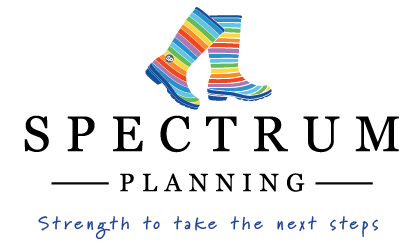A couple of weeks ago, I attended a seminar on estate planning for Special Needs Families. As I was looking around the room, I was struck by the amount of grey hair. It reminded me of the fact that, as our special needs child is growing older, we as parents are growing older, and we won’t be here forever. The absence of younger people was also a sign to me that Aussies are leaving it late to consider their Estate Planning. Living in one of the most idyllic countries in the world with the best medical care, it is easy to have a false sense of security, and to be relaxed about such things.
In fact, a recent article about estate planning in the Money Management Magazine suggested that less than half of Australians have a valid and up to date will, and many people die intestate. 1
If we are honest, however, we all know that there is one certainty in life, and that is that our lives are finite.
As most parents of children with a disability are painfully aware, we are not dealing with normal circumstances when we plan for the future care of a more vulnerable family member. Here are some important things to take into account:
1. Consider how much it will cost to maintain a good quality of life for your child.
It is important to consider how much it will cost for your son/daughter to maintain a good quality of life that is sustainable.
Have you considered future cash flow projections of their needs, and the use of structures like trusts? Most estate plans that are prepared do not consider if the estate is sufficiently funded. With the complexity of tax and Centrelink, this is not an easy exercise.
You also need to be sure of who will administer any trusts on behalf of your child. It is important that the Estate Plan is properly funded and can be implemented properly.
2. Ensure that your child will continue to receive the right government benefits.
Whilst you are alive, maximising your child’s eligibility to receive government support and benefits is a priority. But you do need to think about who would ensure this continued if you weren’t around.
Social security benefits and a health care card may be extremely important to your child, especially if they have ongoing medical needs, so understand the possible implications of any bequests on their social security benefits.
It is possible to protect government benefits like the Disability Support Pension by incorporating a Special Disability Trust within a will for some special needs family members. Speak to your Lawyer and Financial advisor about this.
3. Ensure that your child’s future needs for care and accommodation are looked after.
Through my work with special needs families who are dealing with more severe disabilities, I understand that their child’s future accommodation is often at the top of their minds. Some can afford to set aside funds or a property for their child, but this needs to be clearly documented. For others, the accommodation might be self funded through insurance, and for some it may be necessary to ensure that adequate government or other accommodation options are available over the long term.
In the case where you intend to appoint a professional Trustee company to take care of the management of your child's finances, good research and caution is needed. I have heard stories of the lack of personalized care provided by some professional Trustee companies, with some less than satisfactory outcomes. Now is the time to ensure you have the right team to look after your child long term.
4. Ensure that those appointed to care for your son/daughter will have quick and easy access to vital information about them.
There are things that parents know intimately about their child with special needs. In my child’s case, I know his special interests and his routines, and what causes him stress. Having this information in a format easy to pass on to future carers is one of the best things we can do. It can be of enormous benefit to those supporting your child in the future, making things much smoother for everyone.
You can go about setting this up by documenting a Letter of Wishes, giving a very detailed explanation of your desires, your wishes, intimate details about your child and their preferences.
If your child is younger, it is particularly important to think through who you want to appoint to be their guardian if you are no longer around.
5. Consider the needs of the broader family as well as your special needs family member.
Estate planning is not just about your special needs child. There will also be the needs of the broader family to consider. Poor estate planning can lead to future conflict between family members and even resentment if the responsibly of looking after a special needs family member becomes a burden.
To help prevent this, ensure that you discuss potential future scenarios with family members and future carers while you are still able to do so. There may even be unexpected opportunities for grandparents and uncles, aunts and other family members to financially contribute or help practically.
As parents, we want to do the best for our loved ones and when we have a special needs child, we have additional responsibility. Everyday, we are getting closer to the point when our Estate Planning may be needed, and if it is not up to date, our legacy could be undone.
Don’t wait until you have a crown of grey hair before you start your Estate Planning. Start now, and have one less thing to keep you awake at night.
Reference:
Hacker, Anna (2013, April 10). Making a Start in Estate Planning, Money Management Magazine.

